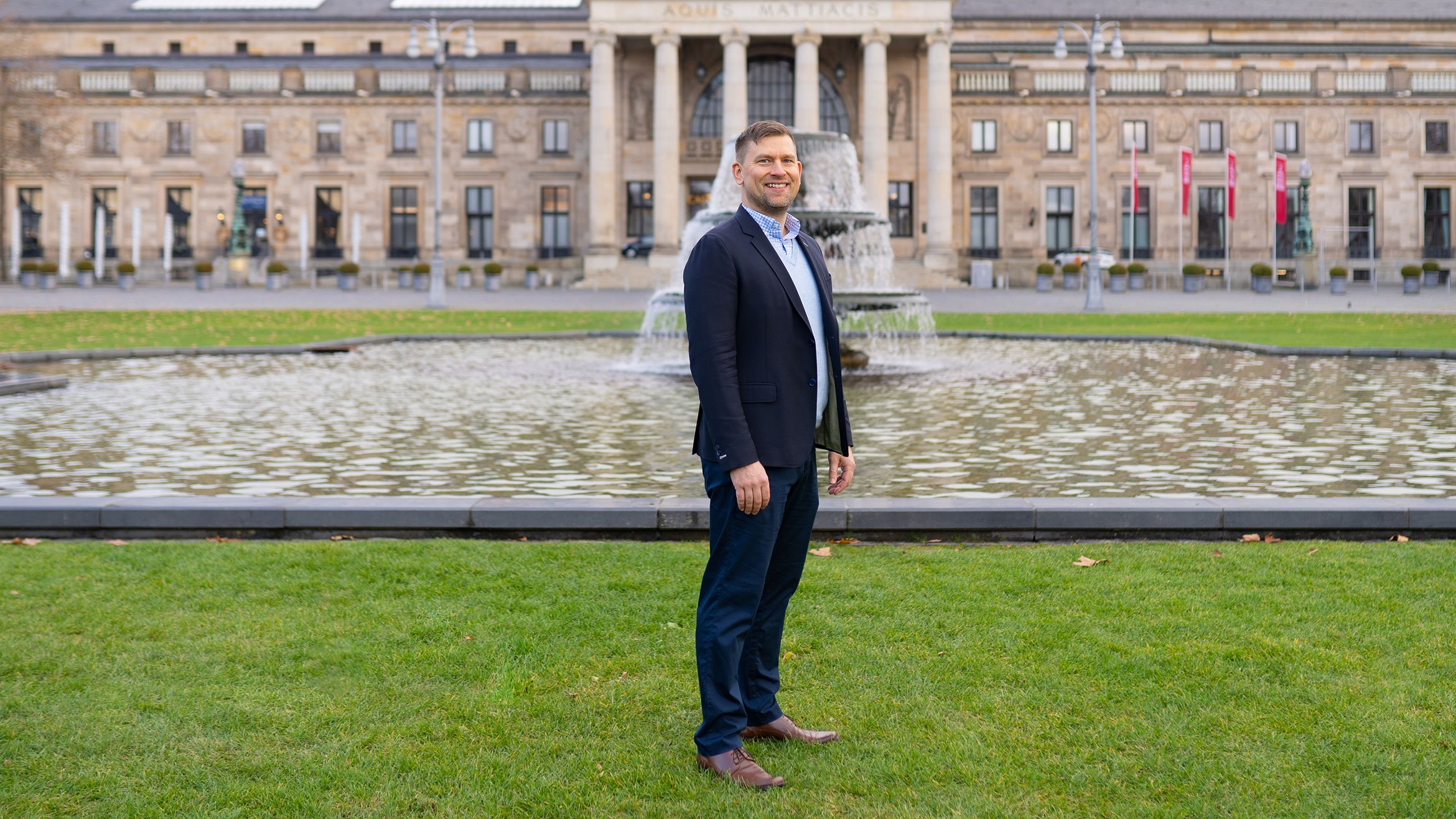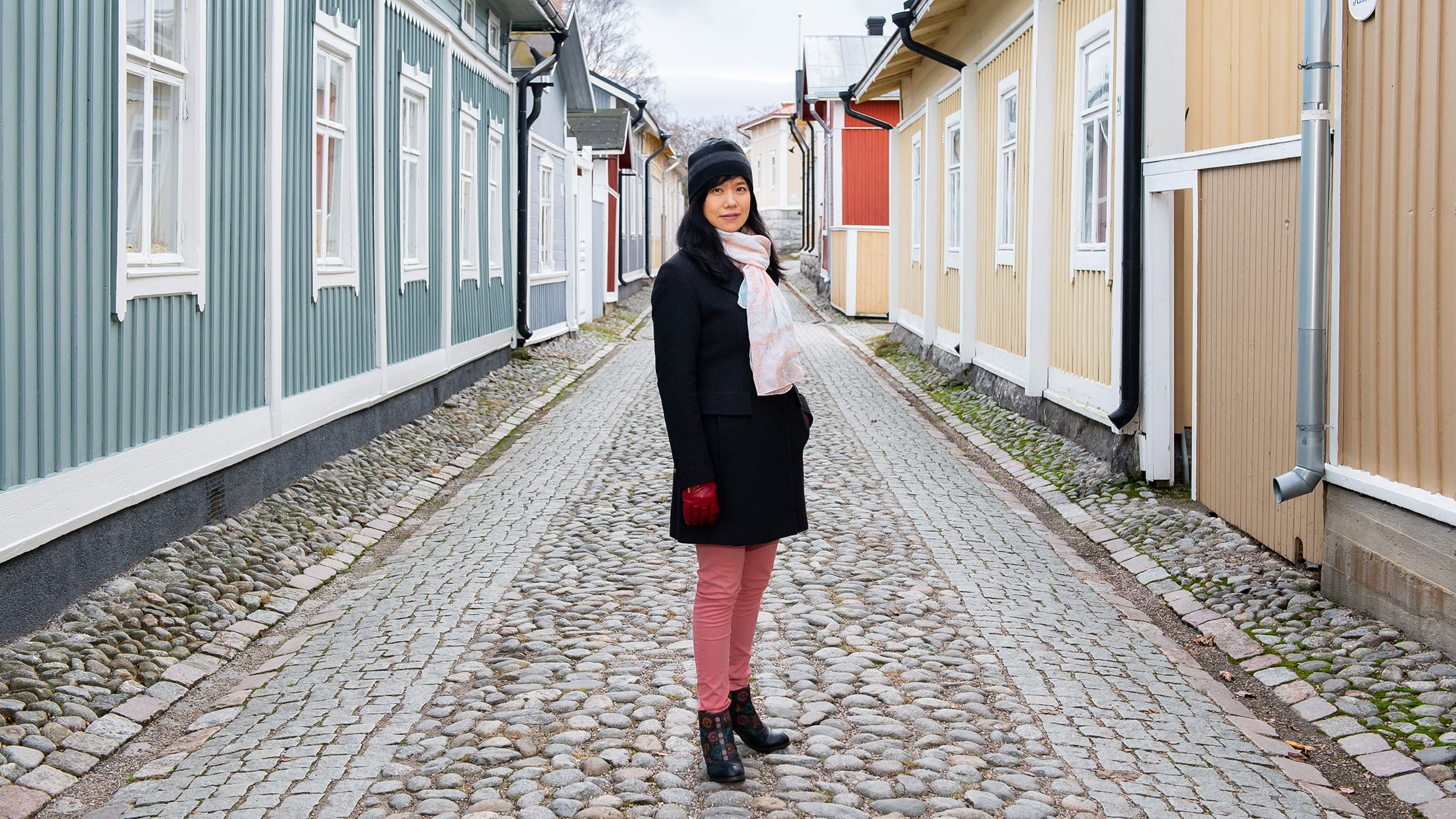
The story of Metsä Group is part of the story of Finland and being Finnish. This is the message that Cindy Zhang, who is Chinese, conveys time after time in China. She works from Shanghai as Metsä Group’s Director, Marketing and Corporate Communication, Asia-Pacific region.
“Metsä is Finnish for forest,” Zhang points out. “We explain how the forest has always dominated the Finnish landscape, and we describe its influence on the country’s culture. It is unique that one Finn in every ten owns some forest.”
Metsä Fibre’s Chinese customers, partners and other stakeholders react warmly to this message. It gives the company’s products – pulp and sawn timber – a deeper meaning.
“Another reason why Chinese people have a positive attitude toward us is because we offer solutions and cooperation that help mitigate climate change. This is an important goal for China,” she adds.
Cooperation and reliable promises
Cindy Zhang, who will soon have been working for Metsä Group for three years, describes what it is like to work in the company. She says Finnish-style corporate culture is a big plus that “makes teamwork easier”. It means that promises are kept, schedules are trustworthy, people are open-minded and innovative, and problems are solved together.
As an example, she shares a story about brainstorming. A few years ago, several Metsä Group marketing and sales professionals were planning a customer event that had formerly been held near the Shanghai office.
“A member of our team voiced the idea of holding it in a very special place, a venue that had been built underground in an old mine. No one rejected the idea, and instead we examined and developed it together, and ended up presenting it to the management.”
It was a good decision. The event was held at the new location and was a huge success, she says.
“It is fantastic to see how our corporate culture encourages and motivates teamwork. Previously, I knew Finland only for its thousands of lakes but, from my work, I’ve noticed that the Finnish culture translates into reliability and collaboration.”

“Our passion for development is known around the world”
In other parts of the world, negotiations can be very different from the Finnish way of doing things. The memory of a sales negotiation from early in his career puts a smile on the face of Kustaa Laine, VP, Sales from Metsä Fibre.
“It was a bit of a culture shock. I noticed that my negotiating partner was conducting several negotiations at the same time, and people were coming and going. It was confusing for me, because I had pre-planned the things I was going to present to achieve my goal,” he says.
He has now worked for the company for 14 years. He is based in Wiesbaden, Germany, and is responsible for selling pulp and timber to America, the Middle East and Africa.
Finns tend to be business-oriented, he says, and plan things carefully in advance, so that they can present information in a logical order. This is not always possible for cultural reasons, but planning helps in these situations too.
“I’ve learned that you should start by identifying the most important points to be decided. Then, even if I feel, as a Finn, that some point hasn’t been discussed thoroughly enough, the customer is usually satisfied. Personal interaction is important.”
Education and a passion for technology
In Laine’s encounters with customers and partners, the origins of the man and the products become apparent very quickly: after all, Metsä Fibre's pulp and sawn timber come from Finland. The country’s diverse nature, extreme weather conditions and seasonal variation are common topics of conversation. They offer a smooth transition to responsible forest management and the production of pulp and sawn timber.
He is proud that Finnish expertise never fails to impress.
“It's great to be able to represent Metsä Fibre and our values around the world. I can confidently say that our products and services are the best in our industry. For example, our technical customer service for pulp is very good at helping customers use our products and run their paper machines as efficiently as possible.”
He sees similarities between the story of Metsä Fibre and Finnish society in general. Finland has always invested in education and has been bold in adopting new technologies. The same is clearly seen in Metsä Fibre’s corporate culture.
“Finnish companies have a constant drive to develop products and services. It’s what we are known for the world over. And, of course, for sticking to what has been agreed.”

“Being yourself at work”
When Marina Lin moved to Finland from China as a child, she knew very little about the country.
“I looked at Finland on the map and thought it was shaped like a girl. I also knew that it would be cold outside, but warm inside thanks to heating,” she recalls.
Over the years, Lin has become a member of Finnish society. She studied to be an engineer in Finland and lives in Rauma with her family. Blueberries and summer dandelions grow in the garden of her terraced house and she treats them the Chinese way. The dandelion may be a weed to Finns, but it can be used in cooking in the same way as spinach.
Asked what she likes best about working for a Finnish company, Lin replies without hesitation.
“Even though I’ve known Finland since I was a child, I was surprised at how strongly Finnish working life values reliability, honesty, hard work and humanity – the right to be yourself without having to conform to expected behaviour. For example, if you’re having a bit of a bad day, it’s okay to share this with a co-worker who can then offer some support.” Lin has now worked at Metsä Fibre for 11 years.
When she turns off the computer at the end of her working day, she does not have to worry about whether she did her job well or not. If a colleague or a manager had wanted her to do something more, they would have told her.
Help for correcting errors
Lin worked in technical customer service for a long time, but now focuses mainly on planning the deliveries of pulp produced at the Kemi mill. Even when someone makes a mistake that requires a lot of people to update the information system, the team members work together smoothly.
“I like the fact that there is no blaming. We focus on fixing the situation together. This culture of teamwork is not a given in all parts of the world,” she says.
